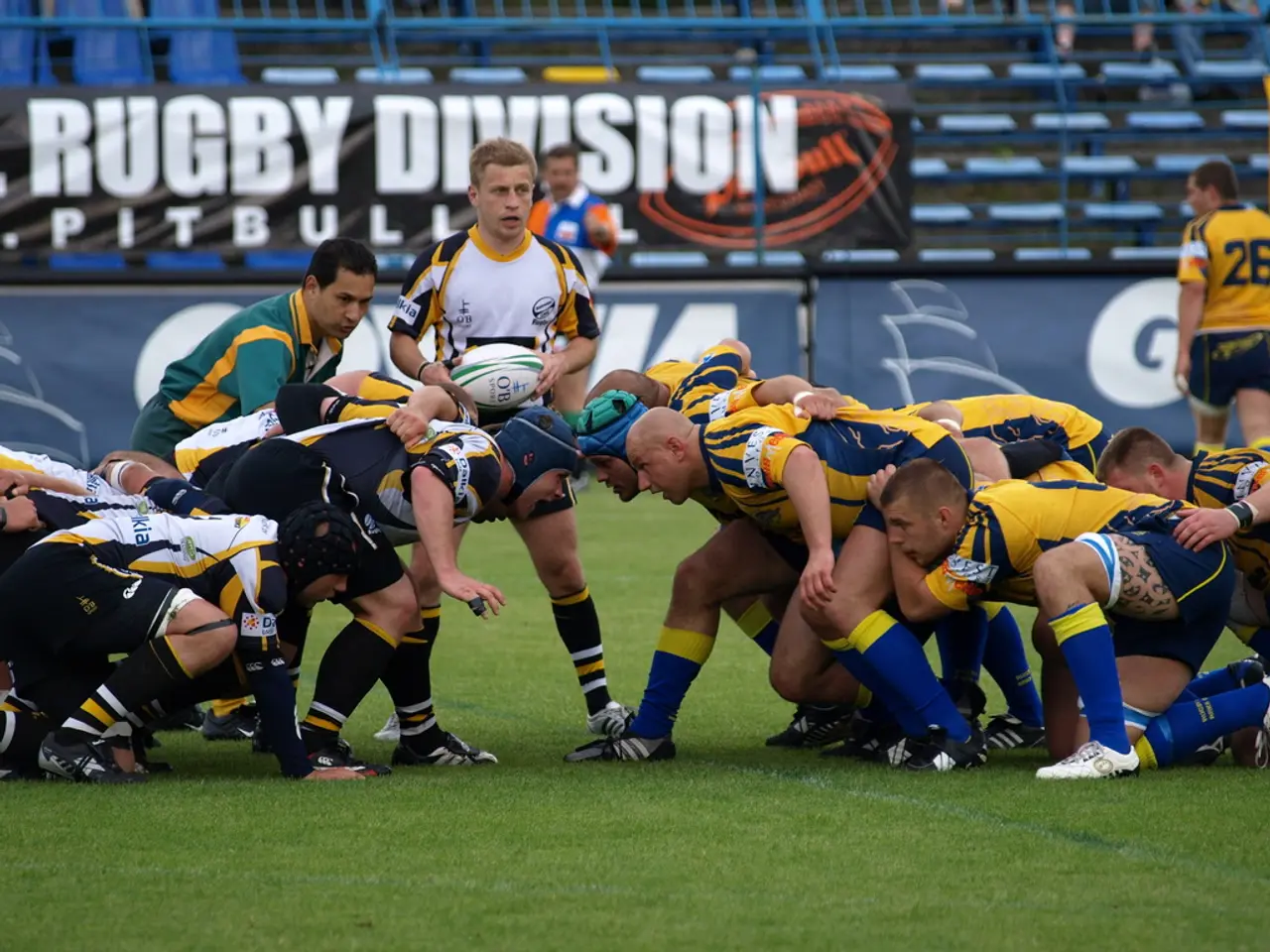Experiencing Stress in Professional Rugby League: Exploring Mental Health Struggles in Elite Sport
Improving Mental Well-being in Professional Rugby League
Professional rugby league athletes face immense pressure to perform, often leading to stress and mental health issues. To address this concern, it's crucial that mental well-being is prioritized alongside physical training.
Future research should explore effective strategies for mental wellness in athletics, identifying what works in terms of support systems. One approach is a multi-faceted strategy that combines mental skills training, psychological therapy, education, and practical lifestyle adjustments.
Performance psychology techniques, such as visualization, goal setting, mindfulness, positive self-talk, and relaxation techniques, can help athletes stay calm under pressure, confident, and in control. Psychotherapy, particularly cognitive behavioral therapy (CBT), focuses on identifying and changing unhelpful thought patterns, improving problem-solving skills, managing stress and anxiety, and addressing issues like depression, burnout, and career transitions.
Mental health literacy and stigma reduction are also essential components of this approach. Greater knowledge about mental health correlates with lower anxiety and depression and better overall well-being. Setting social media boundaries and practicing real recovery help manage stress and avoid burnout, a subtle but chronic issue for athletes facing constant performance pressure and public scrutiny.
Building resilience mindset through cognitive reframing—transforming negative self-talk into constructive thoughts—is another valuable strategy. Developing coping skills linked to perceived control over stress helps athletes view emotions as facilitative to performance, fostering adaptive stress management and emotional regulation strategies.
Support is needed at individual, team, and organizational levels in professional rugby settings to address mental health comprehensively and reduce stigma. Many teams now provide resources aimed at developing resilience among athletes, such as workshops that educate players about mental health.
Social connections provide essential emotional support for rugby league players, with building strong relationships within the team fostering a sense of belonging. Performance anxiety is a common challenge, with the desire to succeed becoming overwhelming. Team dynamics significantly contribute to an athlete's mental state, with healthy relationships fostering a supportive environment.
Sports psychology plays an essential role in addressing mental health issues in athletes, offering strategies for coping and emotional support. A positive relationship with the coach encourages players to speak up when they are struggling, leading to better mental health outcomes for everyone on the team. Building a strong team culture is an ongoing process, with regular team-building activities promoting camaraderie and understanding among players.
Developing strong relationships among players fosters trust, which is crucial for mental health. Support systems for players must improve, with teams providing mental health resources that address the needs of their athletes. Discussions about mental wellbeing in sports are crucial, as many athletes may struggle silently due to the stigma surrounding mental health.
Mindfulness techniques, like meditation and focused breathing, can reduce stress levels among rugby league players and help them stay calm during high-stress moments. Physical fitness routines play a key role in maintaining both mental and physical health among rugby league players.
Efforts to destigmatize issues related to mental health are crucial in the athletic world, with organizations increasingly recognizing the importance of sports psychology. Acknowledging the unique challenges faced by rugby league players is the first step toward fostering a healthier environment within the sport. By focusing on mental health, we can foster an environment where athletes thrive both on and off the field.
- To supplement physical training, exploring effective strategies for mental health in sports, such as mental skills training, cognitive behavioral therapy, and mindfulness techniques, could help professional rugby league athletes manage stress and maintain a balanced well-being.
- Sports-analysis methods, incorporating performance psychology and sports-betting trends, could potentially be integrated into mental health strategies for athletes, offering valuable insights into enhancing mental wellness and coping mechanisms under pressure.
- As mental health is critical for overall well-being in professional rugby league, it is essential for organizations to prioritize health-and-wellness initiatives, including mental health literacy programs, stigma reduction efforts, and promoting strong team dynamics to support the mental health of players and foster a comprehensive, accepting culture.




